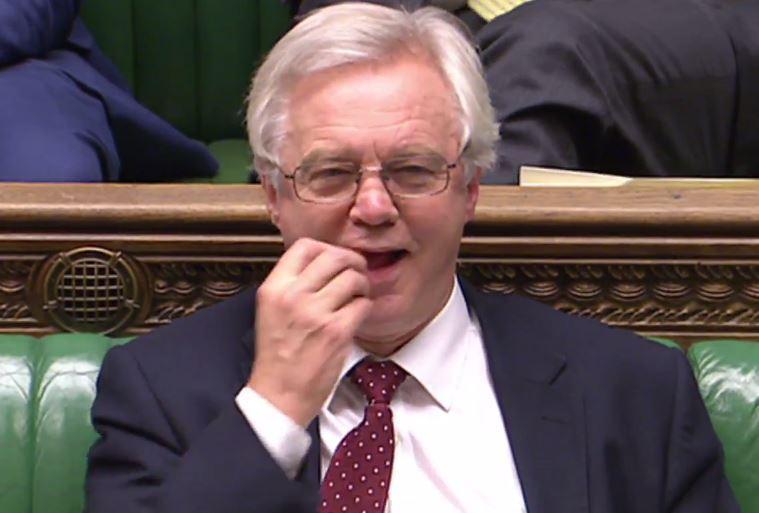I’m an insider and I can tell you how shambolic Brexit really is: from FCO despair over Boris to David Davis’s odd requests
With Boris rumoured to be not reading his briefs and David Davis ever-so-slightly overestimating the strength of Britain’s bargaining position, we need those dreaded experts badly

Your support helps us to tell the story
From reproductive rights to climate change to Big Tech, The Independent is on the ground when the story is developing. Whether it's investigating the financials of Elon Musk's pro-Trump PAC or producing our latest documentary, 'The A Word', which shines a light on the American women fighting for reproductive rights, we know how important it is to parse out the facts from the messaging.
At such a critical moment in US history, we need reporters on the ground. Your donation allows us to keep sending journalists to speak to both sides of the story.
The Independent is trusted by Americans across the entire political spectrum. And unlike many other quality news outlets, we choose not to lock Americans out of our reporting and analysis with paywalls. We believe quality journalism should be available to everyone, paid for by those who can afford it.
Your support makes all the difference.Ministers need competent officials to negotiate a successful Brexit – and they have just lost one of the most competent. Ivan Rogers, the UK’s ambassador to the EU who has just resigned, is no Foreign Office establishment Europhile, as hostile comments from Europhobe politicians have claimed. He’s a classic Treasury man: concerned with the details of policy initiatives as well as the grand sweep of policies, weighing up the risks as well as the benefits and advising ministers on how to strike the best balance.
The Cabinet minister closest to him in approach is Philip Hammond, who loves burying himself in the details of major issues, and modifies his views in the light of what he has learned. And the Chancellor has changed his views on Brexit. Now that he understands the complexities of disentangling the UK from its European partners, he has become, to the surprise of many, one of its strongest proponents in the Cabinet, pushing for a carefully negotiated exit.
So what’s the insider view on what’s actually happening in Government?
Liam Fox believes in reviving the “Anglosphere” – expecting the US, Australia and Canada to offer the UK whatever we want to ask for. He and others also hoped that the rest of the Commonwealth would welcome Britain back with open arms, though the recent trade visit to India offered little encouragement for them.
The Foreign Office is reported to be in despair over Boris Johnson: he is, apparently, not reading his briefs, not providing clear guidance for his officials, alienating other EU foreign ministers whose goodwill we will need to a successful negotiated exit, and failing to hammer out any framework for Britain’s future foreign policy towards Europe.
David Davis has a better reputation, in spite of the many stories of visitors being warned to only say positive things about Brexit when they convene with him, rather than bringing up the difficulties that Brexit may threaten. His weakness, as with other Eurosceptics, is his over-estimation of the strength of Britain’s bargaining position, and his refusal to respect the interests or the domestic politics of other European countries.
The Prime Minister is now stuck between her renewed promise to negotiate an exit treaty which can satisfy the diverse interests of a divided country, and the hard right of her party who want the negotiations to fail. Underlying hostility to Germany, nostalgia for the British Empire, and illusions about unregulated free trade have combined into a toxic mix – which all the evidence provided by business, financial advisers, officials, and overseas observers remains unable to shake.
Many of them are mistrustful of officials, echoing Nigel Farage in their dismissal them as part of Britain’s discredited “establishment”. So far, Theresa May has paid more attention to holding her party together than to reuniting the country. But it may be impossible to hold Europhobes and Conservative realists together once she sets out the terms of the future relationship with the EU she wishes to achieve.
But the clock is ticking. May has promised to trigger Article 50 before the end of March and David Davis has promised an outline of our negotiating objectives by the end of February. That does not leave time for an extended search, either inside or outside government, for a successor to Ivan Rogers in the key negotiating post in Brussels, as some are now suggesting.
The Government has already spent six months since the referendum drifting while ministers disagree, with a Cabinet committee that has made limited progress on a complex agenda. Within the next seven weeks, it will have to provide Parliament and the public with some idea of what it thinks Brexit means. And it will not succeed in carrying the country with it, or persuading Parliament, unless it has competent and expert – yes, expert – officials to advise it, whom ministers are prepared to listen to and learn from.
William Wallace is a Liberal Democrat Peer
Join our commenting forum
Join thought-provoking conversations, follow other Independent readers and see their replies
Comments